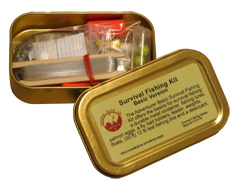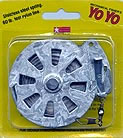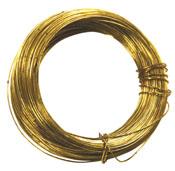Meat Procurement in the Wild
When you're left to your own devices out in the wild, obtaining food becomes an immediate priority. In fact, if you pay attention to nature, you'll realize the vast majority of mammals spend most of their awake hours looking for food. Calories are critically important as they are the fuel that powers the body.
Knowledge of wild edibles in invaluable. Knowing what plants you can eat, and how best to prepare them, can be crucial in a survival situation.
However, the downside is few of those plants provide much in the way of calories. Hey, there's a reason why people on diets eat a lot of salad.
They can fill their bellies and yet not ingest a whole lot of calories, with the result being their bodies burn fat for energy. So, while you can eat a plate full of dandelion leaves to stave off hunger pains, you won't really be giving your body much fuel to run on. For that, you need meat.
There are basically three ways to obtain meat in the wild: fishing, hunting, and trapping.
 It is a wise thing to include gear in your survival kit for each of these options.
It is a wise thing to include gear in your survival kit for each of these options.
Fishing is probably the least physically intensive way to acquire meat in the wild. After all, there are few things more relaxing than sitting on the shore of a lake and wetting a line.
But, as with anything else, there's a right way and a wrong way to go about fishing when we're talking about doing it for survival rather than recreation. First of all, you need equipment like you'll find in our emergency fishing kit. This kit gives you plenty of line as well as hooks, sinkers, and even bait.
The best way to fish when your life depends on it is to NOT just tie the line to a branch and hope for the best. Instead, you want to set the line up and let it fish for you while you're gathering firewood and performing other camp chores. Affix the line to a strong branch that is either still attached to a tree or firmly secured to the ground. Bait the hook and let it dangle in the water. Even better, bring along a Yo Yo Fishing Reel.
 When survival fishing, it is best to check your line regularly, rather than set it in the morning and wait until sundown. The reason for this is the longer the fish is in the water, the better the chance of something else coming along and looking at it as a free lunch.
When survival fishing, it is best to check your line regularly, rather than set it in the morning and wait until sundown. The reason for this is the longer the fish is in the water, the better the chance of something else coming along and looking at it as a free lunch.
Hunting can be tough but is very doable, again provided you've brought along the right gear to assist you. Now, if you happen to have gotten lost WHILE hunting, then odds are pretty good you already have a rifle, shotgun, or bow with you. But, what if you were simply hiking or camping?
You could fashion a spear out of a long branch but I'll tell you something, hunting that way is really a last ditch effort. Put another way, if you've never hunted like that before and you do manage to fill your dinner pot, the very minute you get back to civilization, buy a lottery ticket as you're luckier than most people.
Making a bow and arrows is a very time consuming process if you want to do it even close to right. It will be difficult to concentrate on shaping the bow correctly if your stomach is growling loud enough to wake the dead. A far better option is to have planned ahead and put a slingshot into your pack. Having ammo for it is also a great idea. You can use rocks but unless they are shaped pretty close to round, they might not fly straight.
An even better option is to include a slingbow and arrows. This handy little piece of gear really gives you options. With a slingbow, you can go after larger game than you realistically can with just a slingshot. Larger game means more meat with less effort. One nice thing about the slingbow is you can switch back and forth between it and the regular slingshot. Any piece of gear that has dual purposes is a plus.
 Trapping and snaring is the third way to get meat in the field. There are tons of websites and books that go into intricate detail on how to build traps and snares. Do yourself a favor and learn a half dozen or so at the minimum. Some snares are better than others in certain circumstances and a lot also depends on what animal(s) you are after.
Trapping and snaring is the third way to get meat in the field. There are tons of websites and books that go into intricate detail on how to build traps and snares. Do yourself a favor and learn a half dozen or so at the minimum. Some snares are better than others in certain circumstances and a lot also depends on what animal(s) you are after.
With just about all of them though, you'll need snare wire. A spool of 100 feet will go a long way toward keeping your belly full. Snares are great in that they work while you're off doing something else. But, they are nowhere near full proof and many a trapper has come around to find their snares empty time after time.
In fact, that holds true with all of these methods. Do not put all your eggs in one basket, so to speak. Give yourself options by including in your survival kits multiple ways to obtain meat in the field. If you don't, sure as God made little green apples, the time you really need to fill the dinner pot and all you have is your survival fishing kit, the fish won't be biting but you'll see tons of rabbits.
